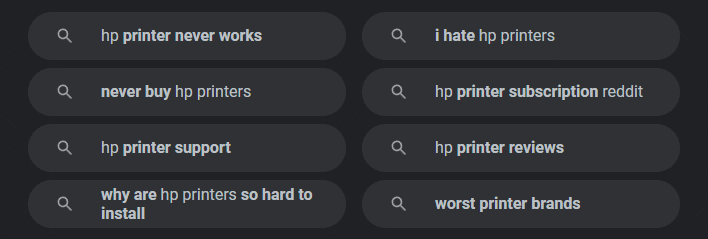Judge Greenlights Class-Action Suit Against HP's Controversial Printer Ink Tactics

There's no denying it, either; it's been well-known for at least a decade. Despite this, HP is trying to dodge a class-action lawsuit brought against them by angry customers who would really like to be able to scan and fax documents even when they are out of ink.
Actually, the judge, Honorable Beth Labson Freeman of the Northern District of California, originally dismissed the complaint on legal grounds, but did not address the lawsuit's claims and allowed the plaintiffs to amend the claim and resubmit it. They did so, and on August 10th, the judge then rejected HP's request to dismiss the now-revised complaint. That means the case will proceed.

In the past, HP has issued firmware updates to block customers from using third-party or refilled ink cartridges as well. However, HP is hardly the only company that does this, though it is the only printer company that also has an ink subscription service that sends you ink cartridges which can't be used if your subscription expires.
Which isn't to say that other printer manufacturers are innocent of similar behavior. Epson also got called out for blocking third-party ink with firmware updates, and caused outrage last year when it came out that its printers could brick themselves over a minor maintenance issue. In a more humorous issue, Canon had to teach customers how to break their own DRM protection on its cartridges, and it also got dinged by a lawsuit in 2021 for the very same thing HP is being accused of doing now.
Hopefully, the outcome of these legal proceedings will result in consumers being treated more fairly with respect to the products that they buy, own and maintain.

